 FILM
FILM « In Which We Enter The Theater Of All Our Operations »
 Monday, June 5, 2017 at 10:43AM
Monday, June 5, 2017 at 10:43AM 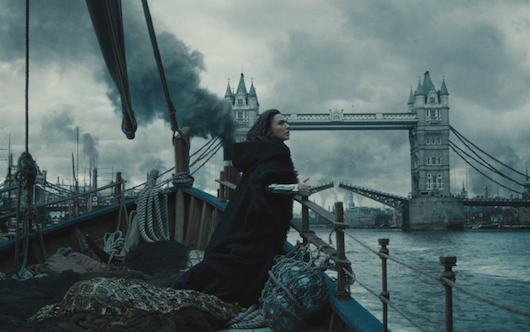
The Only One
by ALEX CARNEVALE
Wonder Woman
dir. Patty Jenkins
141 minutes
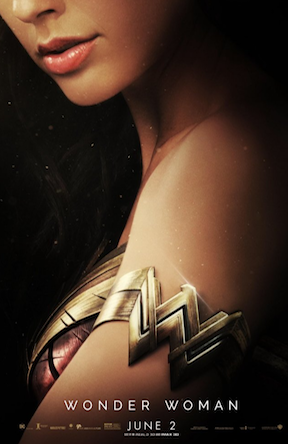 When Diana Prince (Gal Gadot) sails into London in 1918, all she can think of is how ugly the city is. Long before landfall, Diana's mother Hippolyta (Connie Nielsen) was fearful of how she might react to the idea that she is a mutant. Hippolyta create an elaborate mythology to explain why she has no living father and lives in a cloistered society of immortal women without men or children. As explanations from single mothers go, I have heard far worse. Herodotus placed this Diana's tribe of women on the coast of Northern Turkey – in Wonder Woman, this paradise has become a safe haven from the civilized world. When Diana goes to leave Turkey, her mother says, "You may not return."
When Diana Prince (Gal Gadot) sails into London in 1918, all she can think of is how ugly the city is. Long before landfall, Diana's mother Hippolyta (Connie Nielsen) was fearful of how she might react to the idea that she is a mutant. Hippolyta create an elaborate mythology to explain why she has no living father and lives in a cloistered society of immortal women without men or children. As explanations from single mothers go, I have heard far worse. Herodotus placed this Diana's tribe of women on the coast of Northern Turkey – in Wonder Woman, this paradise has become a safe haven from the civilized world. When Diana goes to leave Turkey, her mother says, "You may not return."
I was very confused by this milquetoast comment: did Hippolyta mean there was a chance she might not make it back, or that she was not allowed back? Maybe I missed something. In any case, the disappearance of Diana's mother and aunt from the narrative of Wonder Woman is a massive loss, because in the rest of the movie she never has a significant conversation with another woman.
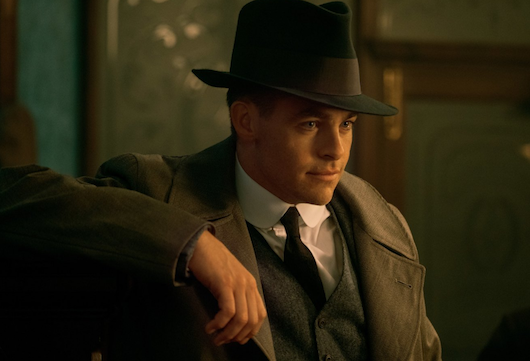
This turns Wonder Woman into quite a boring slog of male faces. It is Diana's mindless desire to reach the war's battles, because she has various abilities which could aid the Allies. Her assistant Steven (Chris Pine) is absolutely tiny, and in his fake German uniform that he uses to spy for the United States, he looks something close to Humpty Dumpty. Steven has no loved ones, or anyone in his life that he cares about, so when he meets Diana, he cannot wait to make her his entire life.
Other men react to Gadot's presence in a similarly typical way. In a meeting of various politicians, they all loudly object to the appearance of a woman. Steven's three associates are a Sunni Muslim, an American Indian and a Scotsman. They relate to Diana only as an object, but after they see her deflect bullets with the plates on her arms, they are devoted to her because of the protection from harm she offers during the war. Wonder Woman manages to make a film about global violence which barely ever shows death at all.
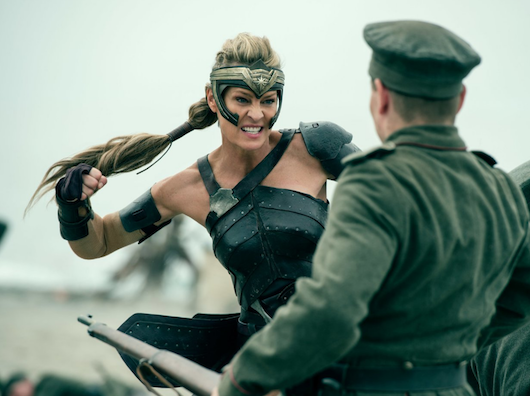
Gadot plays Diana Prince as a straightforward innocent. She does not really appreciate any of the subtleties of espionage, which is meant to be a credit to a direct approach in times of trouble. Wonder Woman goes to great lengths to excoriate generals who wish to pursue an armistice with the Central Powers, but by the end of the film Diana is giving everyone soft hugs, even the Germans who gassed a Belgian town.
Gadot herself unsurprisingly offers little as an actress. Both Robin Wright Penn as her mentor and Nielsen are fantastic in Wonder Woman; they look a lot more like warriors than Gadot does, and generally highlight the Israeli model's struggles to portray basic emotions in this role. When she becomes angry, her Diana Prince is frantic and hotheaded, but there is no acceleration between the two mental states. The saving grace is that her chemistry with Pine is very good, and it is a disappointment that the film leans so little on their romance.

It is unclear how such a person could become a hero to her gender, since we never see Diana's conduct appraised by any actual women in Wonder Woman, just men who are so overwhelmed with her physical prowess that they assume a greater wisdom behind it. Unfortunately this reductive attitude, while useful in identifying warriors, is mostly reinforcement of the patriarchy. All the best moments in Wonder Woman happen before she ever enters the male-dominated world.
After she thinks back on the events of her life, Wonder Woman evinces Diana Prince in an office inside of the Louvre. She is tapping away on a tablet and has become something of a typical bourgeois drone. It is quite sad to see her reduced to a normal existence, but I suppose if she was doing something important, she would have no time to team up with a bunch of yet another bunch of men for 2018's Justice League. Who knows? One day, in the far future, she may deign to speak to another woman again.
Alex Carnevale is the editor of This Recording.
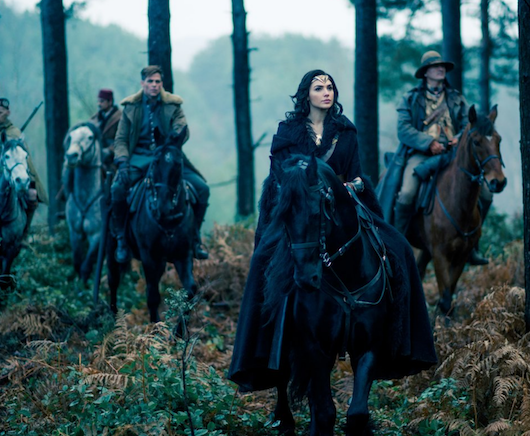
 alex carnevale,
alex carnevale,  chris prine,
chris prine,  gal gadot
gal gadot 





























Reader Comments